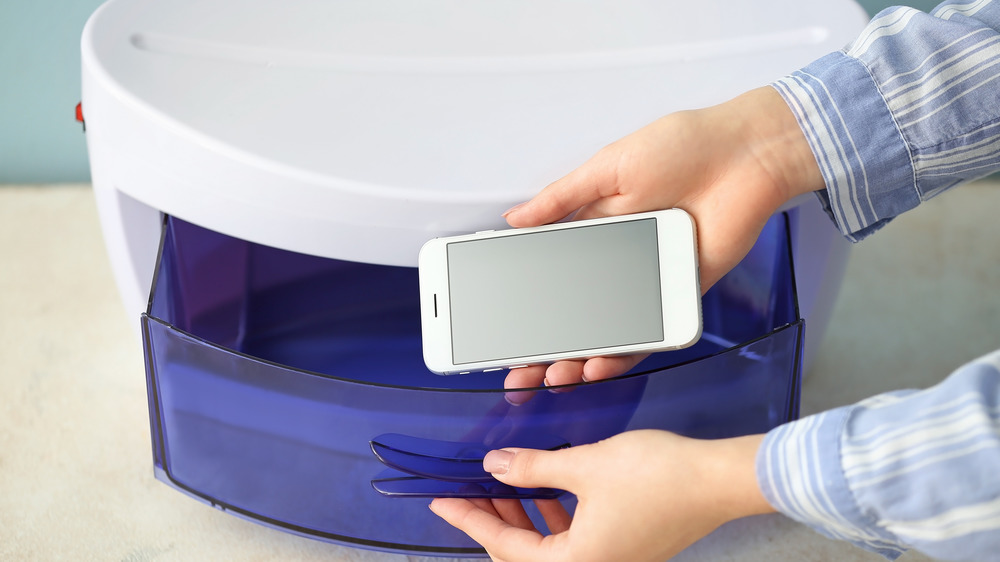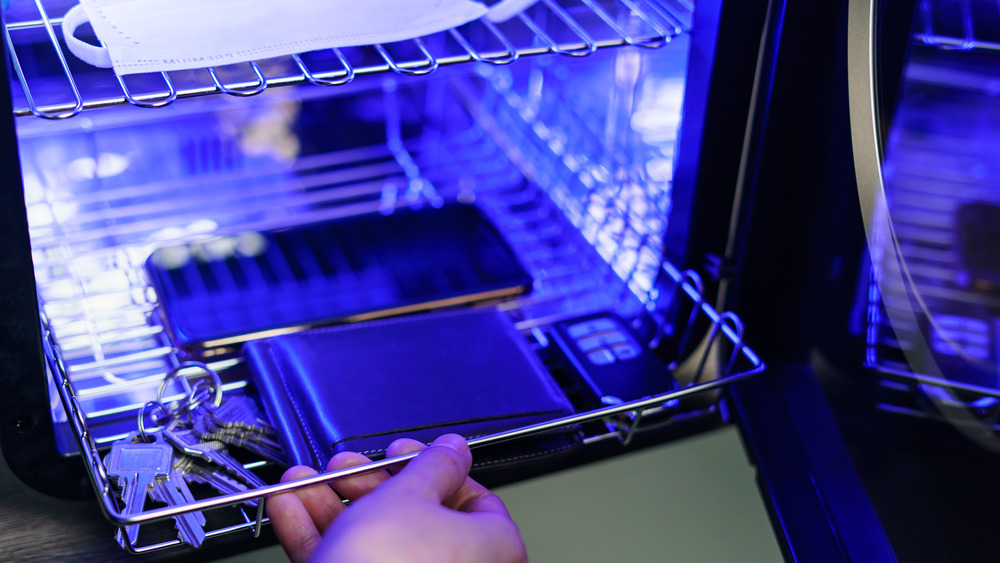Do UV Phone Sanitizers Actually Work?
In 2020, we don't just want to disinfect our phones, we want to sanitize everything. Many of us have practically considered bathing in sanitizer to help eliminate the germs we feel like are invisibly lurking everywhere. Although sanitizing your entire body is obviously not a good idea, your phone can indeed be disinfected. Interestingly, UV light has shown promise as a noninvasive way to sanitize items, especially those that cannot get wet. That said, UV light has not yet been recognized by U.S. regulatory agencies as effective against the novel coronavirus (via PC World). Full stop.
So what does this mean? UV light, specifically UV-C hasn't been tested enough to provide conclusive evidence that it kills COVID-19. Until we have the evidence, you should clean your device with a backup method as approved by the EPA for COVID-19 disinfection. On a positive note, UV sanitization has been highly effective in early tests showing a 99.995% kill rate on SARS-CoV-2, according to CleanSlate UV. The National Academies of Sciences, Engineering, and Medicine agree, noting UV light's ability to kill both viruses and microbes, but emphasized that it must be used correctly. Guidelines on UV for coronavirus are likely in the works as of this writing, and we hope to know more soon.
UV light itself has been shown as highly effective for general sanitization, but many UV products are less so. Beware of under-powered or knockoff products like some UV light wands (via Discover Magazine). Unfortunately, it's very difficult to tell which ones are the right ones. Also avoid the idea that UV lights are safe and effective for humans.
Phones are huge germ vectors
Time magazine warned us back in 2017 that the average cell phone is 10 times dirtier than a toilet seat. Simply put, phones are nasty. We take them everywhere, shove them in all sorts of purses and pockets, breathe on them, set them on any available surface, and most people also take their phones in the bathroom (whether they admit it or not). "Because people are always carrying their cell phones even in situations where they would normally wash their hands before doing anything, cell phones do tend to get pretty gross," said Emily Martin, assistant professor of epidemiology at the University of Michigan School of Public Health.
Believe it or not, it's often our fingers that are the biggest culprit (yet another reason to wash your hands frequently and for the correct amount of time). The average American checked their phone an average of 47 times a day, according to a survey cited by Time, and that was well before the rise of doomscrolling.
If you really want this spelled out with data, know this: Cell phones carry 25,127 bacteria per square inch. For comparison, doorknobs yield 8,643 bacteria, checkout screens boast 4,500, and toilet seats have 1,201 (via State Food Safety). This is a good reminder that, even without the coronavirus, hand-washing should be frequent and commonplace.

